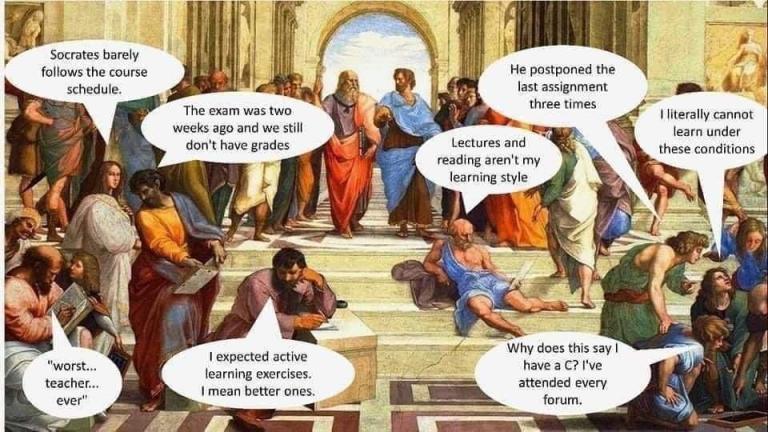Watching the Chosen– A Review of the Review 2025-08-19T22:55:52-04:00 Ben Witherington
Without question, the film/TV show The Chosen has had an impact, and a growing audience far beyond all expectations or even the hopes of Dallas Jenkins, the son of Jerry Jenkins (remember the Left Behind series?) the film producer. Could a series filmed in Texas about Jesus, really help us probe the age old question of who Jesus was and is, in a responsible, helpful, and interesting way. The surprising answer is yes indeed.
But I have a question— the essays in this volume are all well written, and make their helpful points of analysis, but why now? The series was not near completion when these essays were written. It wasn’t even to season 5 when they were written, which takes us up to and through the Last Supper. If there ever was a story with a ‘surprise’ ending (at least for the original participants in the ministry of Jesus), because for early Jews the phrase crucified Messiah was about as much of an oxymoron as ‘Microsoft Works’, THIS IS THE STORY. Indeed, the ending of the Gospel story about the death and resurrection of Jesus is a total game changer, changing the way one does or should evaluate everything that goes before in the Jesus story. And the original Gospel writers knew this— which is why they spent about one third of all their verbage on the last week of Jesus’ life and its sequel. Credit to Dallas Jenkins that he understands this, which is why Seasons 5, 6, and 7 have the story slowing down to a snail’s pace, with a lot of filling in the gaps, because of the importance of how the story ends to the overall interpretation of the Christ event. The last week of Jesus’ life takes 2 whole seasons of this film to depict.
So why exactly could the authors of these fine essays not abide their souls in patience and wait and react to the whole shebang when it emerges? I don’t know the answer to this. Did someone want to ride the wave of enormous response to these films while the wave was still a rising tide? Maybe so. I am thankful for these essays, but I suspect that if they had even waited and seen season five, they might have more and something other to say. Why so?
Because in season five there is a much higher percentage of fill in the gaps material. You’ve almost slowed down to an hour by hour account. You learn a lot more about Judas Iscariot and his motives, you learn a lot more about the confusion of the disciples about exactly what Jesus intends to do— despite repeated passion predictions by Jesus along the way. And suddenly scenery matters. Suddenly the Mt. of Olives is way out of town from Jerusalem, somewhere nearer to snow covered peaks (not likely in Judaea in April). And we run into a Pontius Pilate who is way too young, way too flippant, and not sufficiently anti-Semitic (that back story which could draw on both extra Biblical sources with Josephus telling about bringing the Roman eagles into the temple, and draw on stories like the one in Lk.13.1-2). The characterization in season five simply does not work based on what we know about the historical Pilate. According to the cursus honorum Pilate would have had to have served a military command before becoming prefect in Judaea. In other words, he would have had to have been in his 40s at least, and so a bit older than Jesus himself. There is the further problem, as we shall see, that according to the Synoptics, the Twelve denied, betrayed or abandoned Jesus, and were not present observing the crucifixion. And the Gospel of John is clear enough that the only disciple of Jesus called ‘the one whom Jesus loved’ in John 11 is Lazarus, and the phrase Beloved Disciple only occurs after John 11 (see John 13). John the son of Zebedee is missing in action in the first ten chapters of that Gospel, and none of his special eyewitness stories (his call from his nets by Jesus, his presence at the raising of Jairus’ daughter, his presence at the Transfiguration and his request for the box seats when Jesus comes into the Kingdom are all missing from the Fourth Gospel. Shoot, even the term Zebedee doesn’t show up until John 21. Notice the reference to Judean disciples of Jesus at John 7.3 which Jesus’ brothers know about, and see of course John 11-12. Clearly, Jesus had Judaean disciples in the family of Mary and Martha. These are not small historical problems and so when we get to season five we begin to see some historical cracks in the story telling. It’s not John at the foot of the cross with Jesus’ mother in John 19, it is Lazarus the Beloved Disciple to whom Jesus bequeaths his mother (who is taken into the Beloved Disciple’s home in nearby Bethany and according to Acts 1 is still with the disciples in Jerusalem awaiting Pentecost).
On the positive side, I think Jonathan Roumie has provided us with the most winsome, believable portrayal of Jesus ever on film. You find yourself wanting to know, wanting to believe in, wanting to trust this Jesus, and you can see why his flawed original disciples did so. And some of the portrayals of the 12 are equally compelling— especially Matthew and Peter, and to some degree Thomas as well. I am very thankful that Dallas Jenkins will be seeing this series through to its completion.
Now if we could just convince him to do an equally plausible and interesting series on the single person who wrote the largest chunk of the new testament of any single writer– namely the apostle Paul. Only the Hallmark production of Peter and Paul from the 80s with Anthony Hopkins playing Paul and winning the Tony award, comes close to giving a real sense of the historical Paul from a film. But I digress.
Thanks to Doug Huffman and the other consultants on the scripts for the films for keeping it generally in the ballpark, and thanks to the essayists for writing some very fine analysis about the authenticity, plausibility, and relatability of the Chosen. I’m glad ya’ll were chosen to write these essays. I’ll be interested to see what you say when all is said and done by Dallas Jenkins.











 English (US) ·
English (US) ·